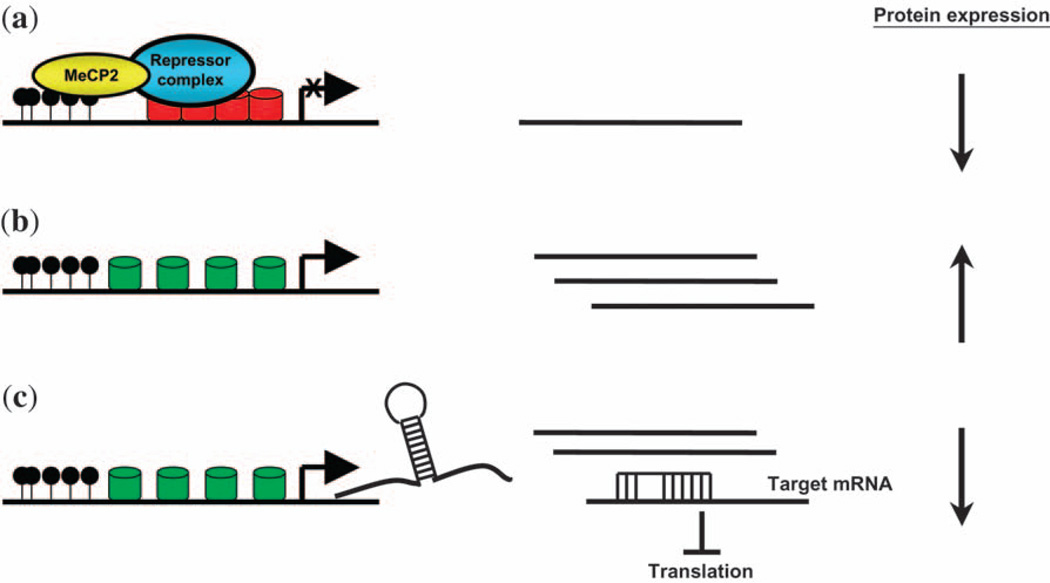Fig. 3.
The differential effects of MeCP2-mediated transcriptional regulation of mRNA or miRNA on protein expression. (a) In this study, the example of MeCP2-mediated transcriptional repression is shown. Through interactions with methyl-CpG dinucleotides and repressor complexes, MeCP2 is able to associate with an open chromatin context. This ultimately results in the decreased protein expression due to reduced mRNA transcript level. (b) In the absence of functional MeCP2, as is the case in RTT patients, the chromatin to which MeCP2 is normally bound becomes more amenable to transcription, and the mRNA expression may be increased compared with the situation presented in (a). Ultimately, the end result is increased protein expression. (c) Nonetheless, if the target of MeCP2-mediated regulation is a miRNA, then downstream protein expression may be altered in the opposite direction. The absence of MeCP2 proximal to a miRNA results in increased expression of that miRNA. In the example shown, there is an increased translational suppression of mRNAs targeted by the miRNA that is overexpressed, causing a decrease in protein expression. Alternatively, in quiescent cells, such MeCP2-mediated epigenetic regulation of a miRNA may ultimately result in increased translation of the miRNA-targeted mRNA. mRNA, messenger RNA; miRNA, microRNA; RTT, Rett syndrome.

